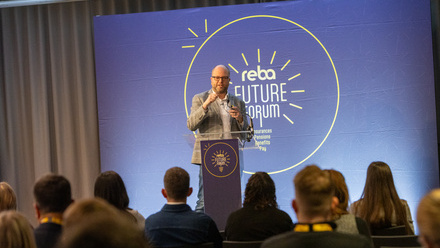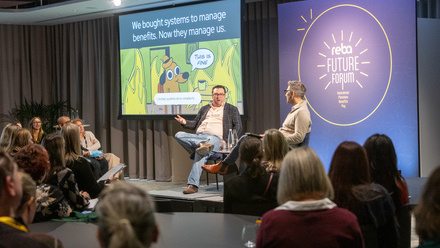Future trends in workplace health assessments

Nothing new and exciting has entered the corporate wellbeing space for at least the last 10 years. However, personalised health technology has made a real impact and had already made tremendous inroads before the Covid-19 outbreak.
And if Covid has sadly taught us anything, it’s that unfortunately the general health of the nation is both extremely poor and more worrying than we had previously thought.
Alarmingly, the Health Survey for England (2019) found that 64% of the UK population, nearly two-thirds of adults, are either overweight or classed as obese. Public Health England found that being severely overweight puts people at greater risk of hospitalisation, Intensive Care Unit admission and death from Covid-19, with risk growing substantially as body mass index increases.
Health issues at work
The Office for National Statistics can provide us with a closer look as to how a variety of health issues can affect us at work. During 2016 a total of 137 million work days were lost due to sickness or injury.
Minor illnesses (such as coughs and colds) accounted for the most days lost due to sickness in 2016, with 34 million days lost (24.8% of the total days lost). Second was musculoskeletal problems (including back pain, neck and upper limb problems) at 30.8 million days (22.4%).
Then the last area, and one that will no doubt see a dramatic increase over the coming year, is that of mental health issues (including stress, depression, anxiety and more serious conditions such as manic depression and schizophrenia) which resulted in 15.8 million days being lost (11.5%).
Health issues will affect every section of society and are all multifaceted issues, each with a generic link or correlation. But having a genetic link or correlation to a particular health issue, such as being prone to stress and anxiety or getting a bad back is just part of the equation.
We also need to take into account that the causation of being stressed for instance is from a whole host of lifestyle and environment factors, such as nutrition, exercise, sleep, stress, medications, pollution or your boss!
How epigenetics can change health assessments
Luckily, Muhdo Health is pioneering the new science of epigenetics, which can help provide some of the answers and recommendations as to why various lifestyle and environmental factors will trigger us to become sick or injured, all of which are individual and specific to each person’s DNA. At a touch of a button employees can take the world’s first and truly unique internal health check.

Muhdo understands that we all come with a set of unique genetic predispositions, whether that be an increased risk of colds or flu, more likely to develop back pain or have stress and anxiety issues. But our lifestyle and environments will affect those same genetic traits and either diluted or accentuated them.
For the most part there will be two things that you keep with you for the majority of your life, your mobile phone and your health. And as the symbiosis between humans and AI moves ever closer and at an exponential rate, the realisation that the synergy between man and machine could possibly be the panacea for improving our health and longevity increases.
Muhdo’s gives each of their customers the ability to understand their genetic blueprint, and to also see how their day to day lives such as their diet, exercise, sleep and environment are affecting them at a genetic and cellular level.
The $64,000 question and the key to epigenetics is that, if we only look at one of these areas, we miss the influence and power of the other.
This is a sponsored article provided by Muhdo Health.






